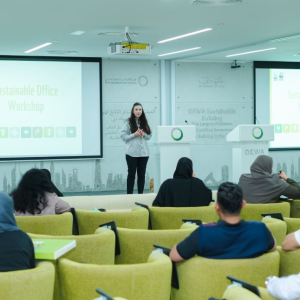In a major step toward modernizing its transportation infrastructure, Abu Dhabi has entered into a strategic partnership with the Japan Cooperation Centre for the Development of Transportation and Infrastructure (JCCDTI). This collaboration aims to bring cutting-edge smart transport solutions to the emirate, enhancing the efficiency, safety, and sustainability of its transportation network. With a shared commitment to innovation and sustainability, this partnership is expected to reshape the future of mobility in Abu Dhabi and set the stage for more advanced urban transportation systems across the region.
The move comes at a time when the UAE, particularly Abu Dhabi, is rapidly evolving its infrastructure to meet the demands of a growing population and a booming economy. The agreement with JCCDTI is poised to play a pivotal role in the emirate’s ongoing efforts to incorporate smart technologies into public services, offering a glimpse into the future of urban mobility.
The Significance of the Partnership
The collaboration between Abu Dhabi Mobility and JCCDTI is built on a shared vision of creating a smarter, safer, and more sustainable transportation ecosystem in the emirate. Japan, known for its pioneering advancements in transportation technology, brings a wealth of experience to the table. The partnership will focus on a wide range of areas, from integrating intelligent traffic management systems to adopting electric and autonomous vehicle technologies.

Abu Dhabi’s transportation sector has been rapidly modernizing in recent years, with a focus on creating more efficient, sustainable, and user-friendly transport options. This partnership will help accelerate the implementation of these goals, leveraging Japan’s expertise in developing smart transport systems and Japan’s reputation for high-quality, reliable solutions. JCCDTI’s experience in the integration of advanced technologies such as artificial intelligence (AI), Internet of Things (IoT), and big data analytics will be crucial in driving innovation within the emirate’s transport sector.
The partnership is expected to result in improved traffic flow, reduced congestion, and more environmentally friendly transport options, aligning with Abu Dhabi’s long-term sustainability objectives. This collaboration will also support the UAE’s broader vision of becoming a global leader in innovation, smart cities, and sustainable urban development.

Areas of Collaboration
The partnership is set to focus on a variety of key areas aimed at transforming Abu Dhabi’s transportation system. These areas include:
1. Smart Traffic Management Systems
One of the core components of the collaboration will involve the development of advanced traffic management systems that leverage real-time data and AI to optimize traffic flow. By using sensors, cameras, and data analytics, the system will be able to monitor traffic conditions, predict congestion, and dynamically adjust traffic signals to improve flow. This could significantly reduce the time spent in traffic, lower emissions, and enhance road safety.
The use of smart traffic management systems is increasingly important in urban areas, as cities face mounting pressure from growing populations and increasing traffic volumes. With Japan’s expertise in managing complex transport systems, this initiative is expected to bring substantial improvements to Abu Dhabi’s transportation network.
2. Electrification and Sustainability
As part of its commitment to sustainability, Abu Dhabi Mobility is working to reduce the environmental impact of transportation by promoting electric vehicles (EVs) and charging infrastructure. JCCDTI’s involvement will be key in implementing technologies that facilitate the widespread adoption of EVs, such as smart charging stations and battery management systems.
The partnership will also focus on integrating renewable energy sources into the transportation system, with a particular emphasis on solar-powered charging stations and other sustainable infrastructure. These efforts are in line with the UAE’s broader environmental goals, including its commitment to reducing carbon emissions and transitioning to a more sustainable economy.
3. Autonomous and Connected Vehicles
The collaboration will explorethe integration of autonomous and connected vehicles into Abu Dhabi’s transportation network. Autonomous vehicles (AVs) have the potential to revolutionize urban mobility by offering safer, more efficient, and cost-effective transport options. Japan, being a global leader in autonomous vehicle development, brings decades of expertise in vehicle automation, sensors, and artificial intelligence (AI).
The partnership will focus on integrating AVs into existing transport systems, including the use of autonomous buses and taxis. These vehicles will rely on cutting-edge technologies such as AI, machine learning, and 5G connectivity to navigate city streets safely and efficiently. Additionally, connected vehicles will communicate with each other and the surrounding infrastructure, providing real-time data to improve traffic management, road safety, and overall transportation efficiency.
With the UAE’s vision of becoming a global hub for smart cities, the introduction of AVs in Abu Dhabi will set the stage for more futuristic, intelligent transportation solutions, paving the way for seamless, high-tech mobility options.
4. Public Transport Enhancement
The partnership will also focus on improving public transportation services by implementing smart technologies that enhance the passenger experience. From real-time tracking of buses and metro systems to the introduction of mobile applications for trip planning and ticketing, Abu Dhabi Mobility aims to create a more efficient and user-friendly public transport system.
The integration of smart transport services will help make public transportation a more attractive option for residents and visitors. By optimizing routes, schedules, and vehicle availability, public transport will become a more convenient and reliable mode of travel. Moreover, this initiative is expected to reduce the dependency on private cars, further alleviating traffic congestion and lowering the city’s overall carbon footprint.
5. Data-Driven Decision Making
A crucial aspect of the collaboration will be the use of big data and analytics to inform decision-making in the transportation sector. JCCDTI’s expertise in data-driven solutions will help Abu Dhabi Mobility collect and analyze vast amounts of data related to traffic, transport usage, environmental impact, and infrastructure needs.
By leveraging this data, authorities can make more informed decisions about infrastructure development, transportation policies, and future technological investments. For example, predictive analytics could identify areas where congestion is likely to occur, enabling proactive measures such as road expansions or adjustments to traffic signal timings.
Benefits to Abu Dhabi
The benefits of this partnership will be wide-ranging, both in the short and long term. For Abu Dhabi, the introduction of smart transport technologies promises to significantly improve the overall efficiency and sustainability of its transportation network. As a result, the city will become more resilient to traffic congestion, reduce carbon emissions, and enhance the mobility of its residents and visitors.
Additionally, the integration of innovative
Do follow Uae stories for more Updates












